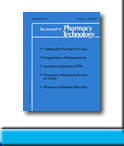 |
 |
THROMBOLYTIC THERAPY IN
THE TREATMENT OF ACUTE ISCHEMIC STROKE
Karl A Matuszewski and John D
Seeger
To request full article click here.
OBJECTIVE: To review the emerging role of thrombolytic therapy in the treatment of acute ischemic stroke, with a focus on recent major clinical trials.
DATA SOURCES: A MEDLINE search was performed to identify pertinent English-language articles on recent (January 1994-August 1996) studies in humans.
STUDY SELECTION AND DATA EXTRACTION: All articles identified were reviewed for possible inclusion. Abstracts, case series, and review articles were excluded. Reference lists were scanned to ensure that all appropriate sources of information were considered. Only prospective, randomized, controlled, blinded clinical trials were evaluated.
DATA SYNTHESIS: Stroke is a common cause of mortality and morbidity in the US. It affects more than 550,000 individuals every year, resulting in approximately 150,000 deaths. Until 1996 no direct treatment was available for this disease, and most care was supportive and rehabilitative. Many agents, such as heparin, aspirin, ticlopidine, and warfarin, have been used to treat stroke patients. This review focuses on five clinical trials that used intravenous streptokinase or alteplase for the treatment of acute ischemic stroke. Differences in study design (drugs used, dosages, outcome measures) most likely influenced the results obtained by the various investigators.
CONCLUSIONS: Alteplase is the only thrombolytic agent with a demonstrated significant positive outcome in the treatment of acute ischemic stroke. However, thrombolysis started 3 or more hours after onset of stroke may be detrimental, and a computed tomography scan or other image must be rapidly obtained to rule out intracerebral hemorrhage. Patients should be informed of the higher risk of 30-day mortality versus the benefit of improved functioning at 3 months. Caution must be exercised regarding the contraindications to alteplase therapy, and institutions should have available immediate surgical intervention capabilities to manage cerebral hemorrhage.
KEY WORDS: stroke, thrombolysis, thrombolytic therapy.
J Pharm Technol 1998;14:101-105.
ACPE Universal Program Number: 407-000-98-052-H01
To request a copy of the complete CE article click here.
To request full article click here.
|
|
|
||
|

